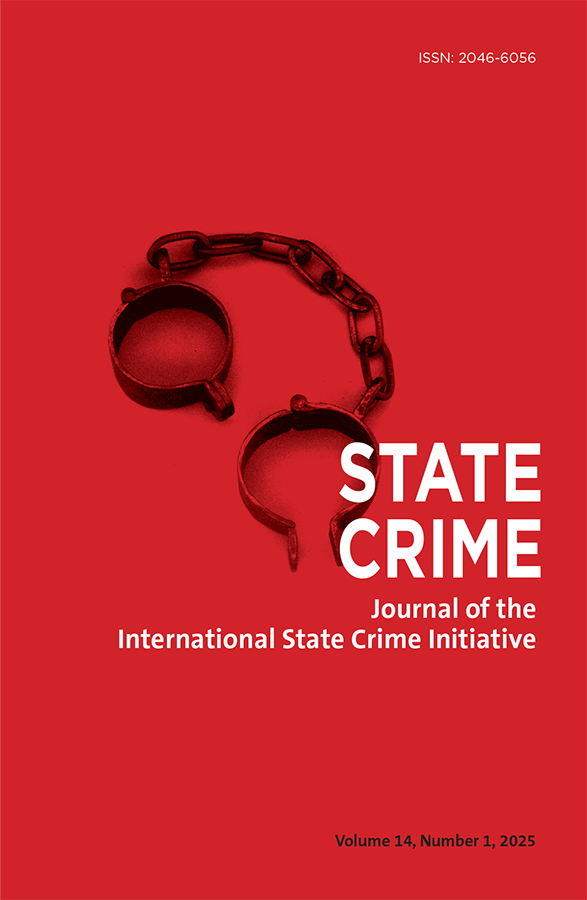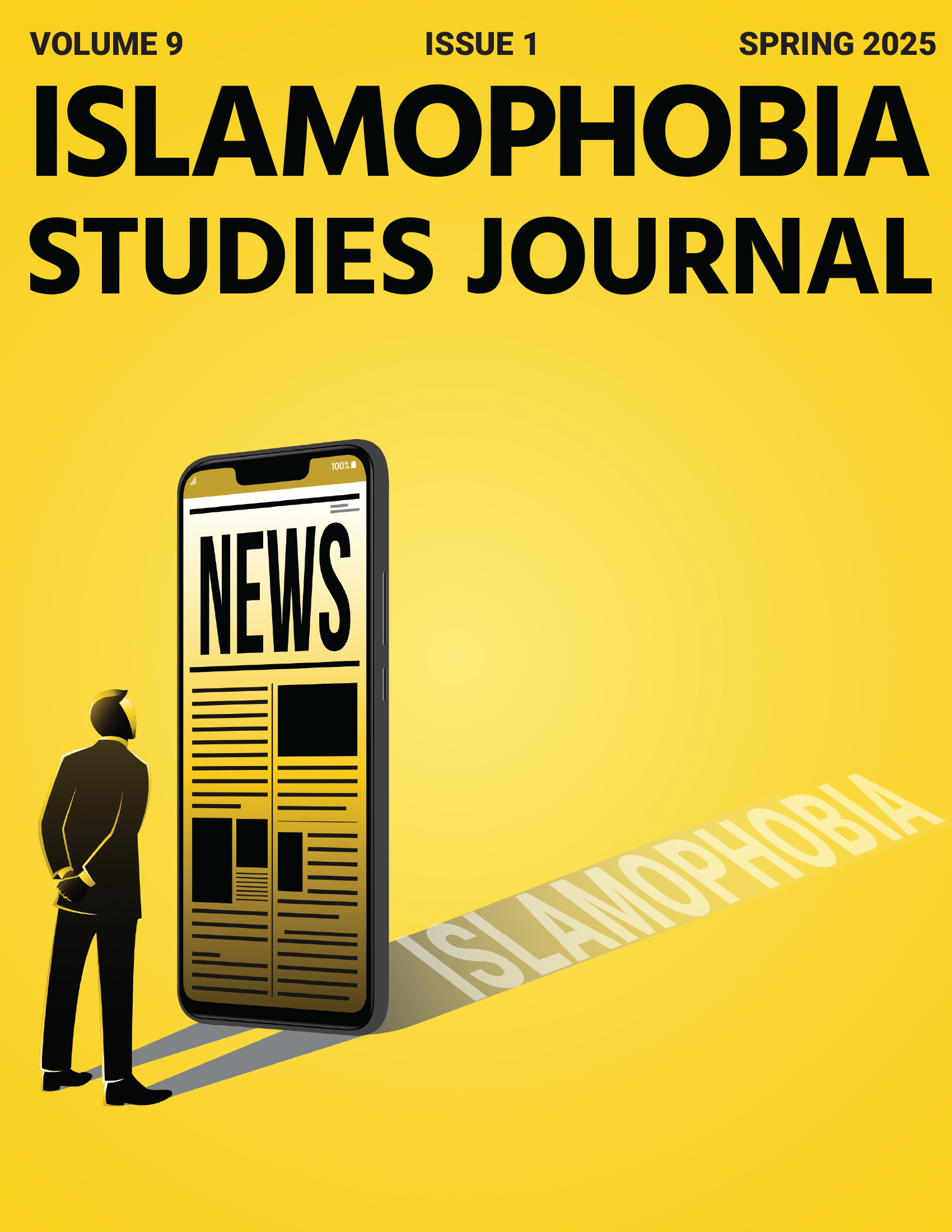State Crime, Islamophobia and Indentureship Reflections.
This autumn, we have some thought provoking articles exploring current issues from the latest publications from our collection: State Crime Journal, Islamophobia Studies Journal, and Journal of Indentureship and Its Legacies.
All of our journals are Diamond Open Access, meaning every article is free to read. You can see our whole collection and the archive on ScienceOpen and JSTOR.

In the latest issue of State Crime Journal, Volume 14, issue 1, Hedi Viterbo’s article “Entangled Others: Intergroup Connectivity in Racialization—Israel/Palestine and Beyond” introduces a typology of four intergroup connections and examines how the othering and racialisation of one group, such as Palestinians, are linked to those of others, including African asylum seekers, faraway Indigenous peoples, migrant workers, and non-European Jewish Israelis.
Maayan Geva examines how military legal practitioners use the language of morality and when they refrain from doing so, and considers the correlations between these presentations of morality and state violence in “Israel’s Laws of War: The Waning of Moral Claims among Military Lawyers”.
In Tracking Financial Complicity in Israeli War Crimes and Genocide: Instances of Aiding and Abetting in the Canadian Charitable Sector Miles Howe utilises tax return data gathered through Access to Information requests, and probes the Canadian charitable sector for evidence of financial complicity in the aiding and abetting of Israeli war criminality and genocide.
Finally,, Cristina Del Biaggio and Sarah Bachellerie analysed the “kill chain” that led to the death of Blessing Matthew, a young Nigerian woman who tried to cross the Franco–Italian Alpine border, in May 2018 in “Who Killed Blessing Matthew at the Franco–Italian Border? Framing Responsibility through an Analysis of the Entanglement of Law and Space”.

Editor Hatem Bazian introduces the latest Islamophobia Studies Journal, Volume 9, Issue 1, by exploring “The Racialized Spectacle of Terror: Decolonizing Narratives of Political Violence in the West”, specifically looking at recent events in Germany. Ali Salami investigates “Islamophobia, Emotional Politics, and Postcolonial Legacy in Western Media: Framing Fear” through a qualitative analysis of media coverage by major news outlets in Germany, the United Kingdom, and the United States at four significant points in time (post-9/11, the July 7 London bombing, the kidnapping of German construction workers in Iraq, and the WTC plaza fire).
In “Burner Charities and Big Gifters—Tracking Illicit Activity Within in the Canada to Israel Charity Pipeline” Miles Howe, also a contributor to State Crime Journal, and Paul Sylvestre suggest significant financial loss to the Canadian economy (potentially exceeding $1 billion CDN) as a result of transgressional, charitable, activity within the subsector. Marchella Ward questions whether Islamophobia can be historiographical in her article “Theorizing Historiographical Islamophobia”. Ward identifies “classicism” as an Islamophobic discourse that produces ethnonationalism by establishing the cultural and racial production of identity as something that is fixed in the “classical” world, defined as crucially before the coming of Islam.
In “Studying Islamophobia in France and England: My Journey between Despair and Success” by Kawtar Najib offers a critical reflection, from the author’s perspective and developing research as a French Muslim geographer in both French and Anglo-American universities, to discuss the circulations, confrontations, and differentiated receptions of knowledge between academic and political spaces on the geographies of inequality and Islamophobia. Anna Ardin and Mattias Irving examine how the concept of Islamism and the label “Islamist” are defined and whether these constructions contribute to the stereotyping of Muslims in “The Islamist Labeling of Muslim CSOS: A Critical Examination of Stereotypes about Muslims and Islam in a Public Agency in Sweden”.

The latest issue of the Journal of Indentureship and Its Legacies, Volume 5, Issue 1, brings together conversations, creative works, and critical reflections that explore how the legacies of indentureship continue to shape identity, belonging, and cultural expression.
It opens with “The garlic in the cook-up rice: An interview with Portuguese-Guyanese artist Dennis de Caires” by Clare Parfitt reflecting on migration, family ties, and shared heritage. In “Redefining the hyphen: Transnational Indo-Caribbean identity through objects, memory and representation in conversation with Jacqui Ramrayka” Cristine Khan examines the work of British-Guyanese ceramicist Jacqui Ramrayka, whose exhibition ‘Redefining the Hyphen’ at the V&A considers how material culture, memory, and migration inform Indo-Caribbean identity across London, New York, and Toronto.
In “Culture Talks: Attenborough Arts Centre and the Institute for Advanced Studies join in dialogue with artist Sabrina Tirvengadum at the University of Leicester, 11 March 2025” Clare Anderson and Esme Cleall’s interview with Sabrina Tirvengadum, offers a deeply personal exploration of identity, family history, and belonging, shaped by her Mauritian heritage and experience of hearing loss. The issue also includes poems by Amílcar Sanatan in “Field Notes from Chaguanas and Bamboo Settlement No. 2”.Stay up-to-date with the latest research highlights by signing up to the Pluto Journals newsletter!

